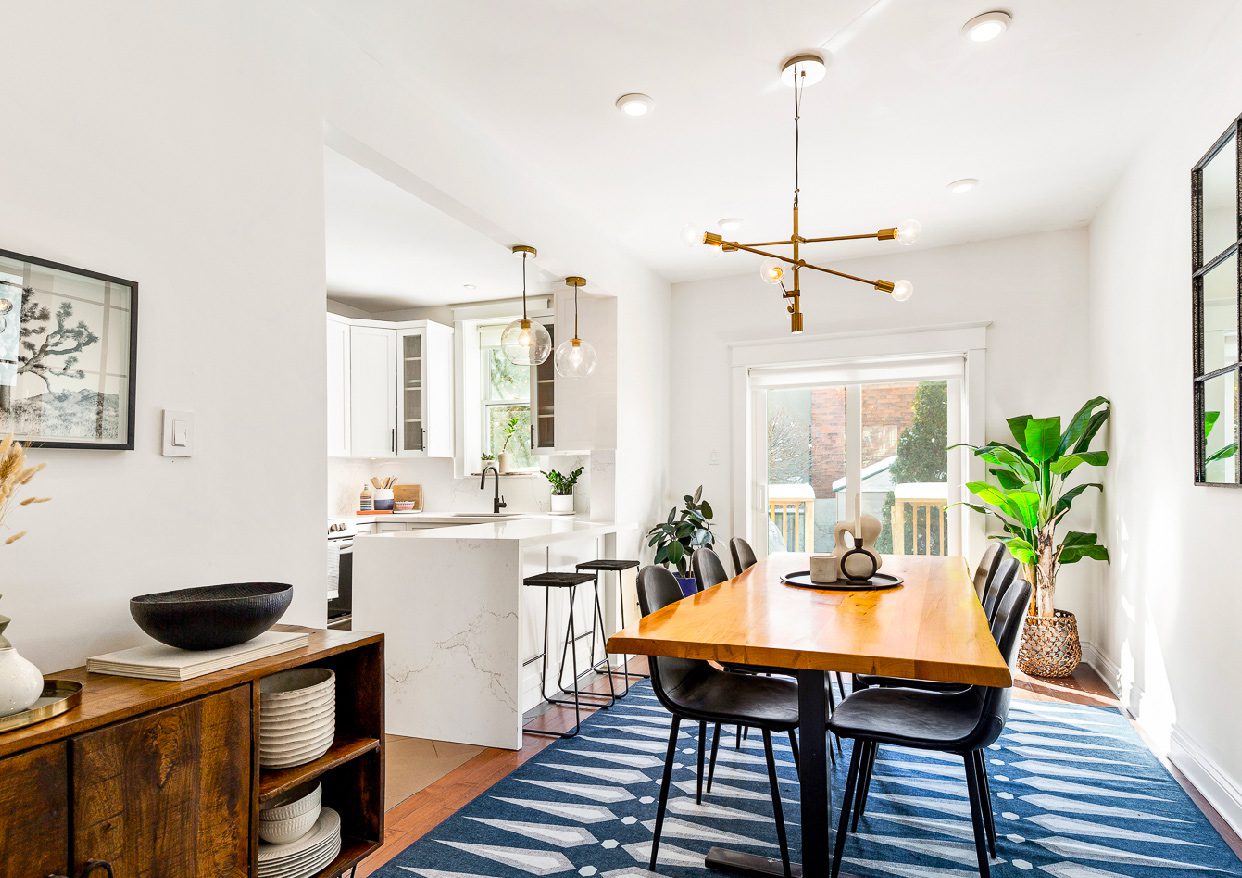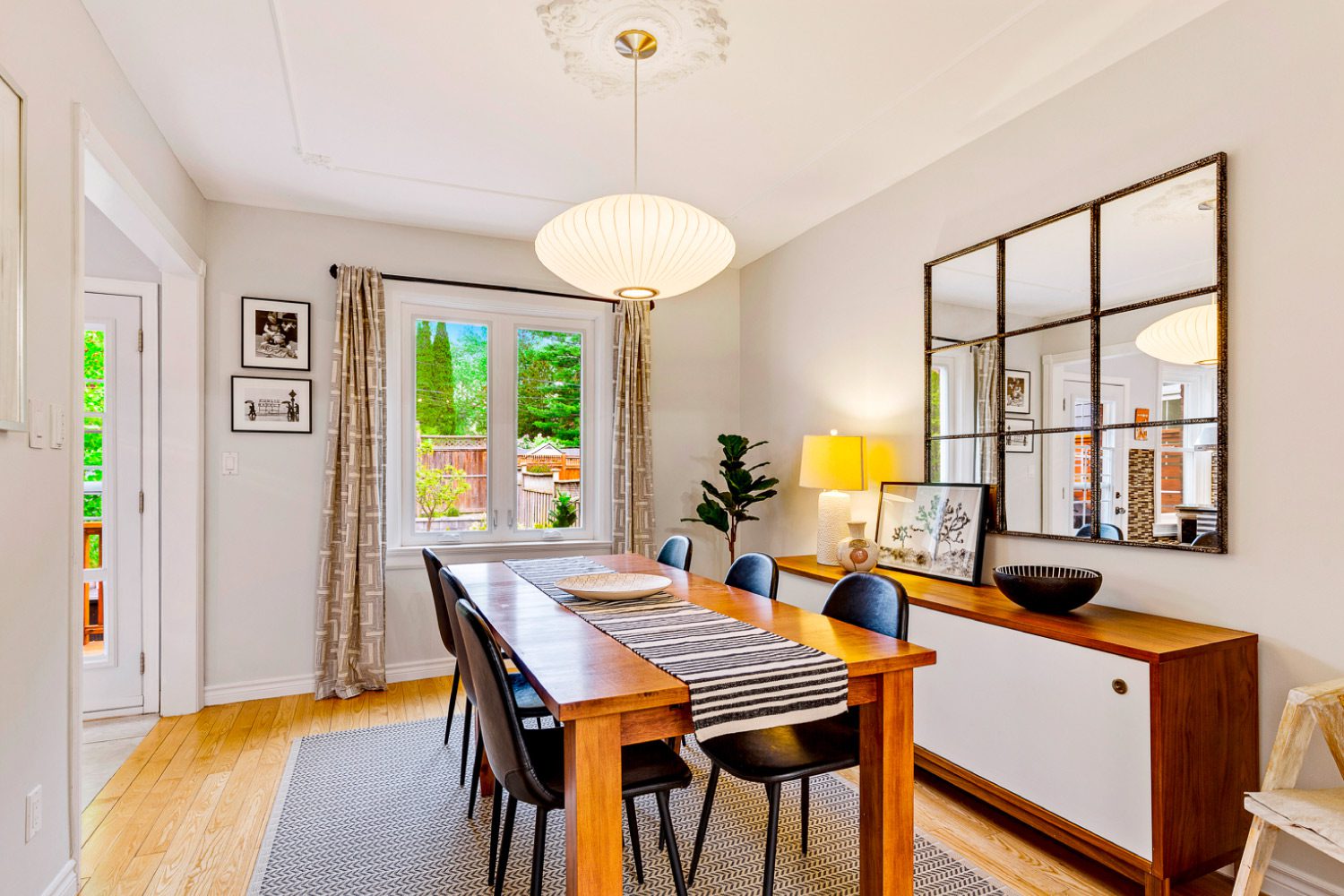December 6, 2024 | Buying
How to Avoid Making Move-Up Homebuyer Mistakes

Swapping homes and moving up to a bigger house can be a game-changer for families who need more space, a better location, or features their current home simply can’t offer. But with Toronto’s high real estate prices and the many costs of moving—like land transfer taxes, real estate commissions, and hiring movers—it’s essential to make sure the move is worth it. Often, families consider renovating rather than moving, as the $150,000 to $200,000 typically spent on moving costs alone could be better invested in upgrading their current home. However, some things—like location, lot size, or lack of parking—can’t be fixed with a renovation, making a move the better and obvious option.
Planning on buying a home soon? Sign up for the West End Scoop right here for the latest market commentary, neighbourhood info, design inspo, and more!
We work with many move-up buyers in Toronto’s west end and have gained valuable insights along the way. If you’re thinking about upgrading to a larger or better-suited home, how can you avoid common mistakes and ensure a smooth, successful transition? Here’s what you need to know.
1) Create a problem-solving plan & stick to it
A move should solve your current home’s pain points. Before you start browsing listings or visiting open houses, take a step back and identify what exactly isn’t working in your current home. Are you feeling cramped because your family has outgrown the space? Do you need an extra bedroom or a home office? Are you looking for better schools, more storage, or a location closer to work?
By pinpointing your specific needs, you can focus on homes that address those issues. Without a clear plan, it’s easy to get distracted by homes with appealing cosmetic features but that don’t actually solve your problems. For instance, if your main issue is needing more bedrooms, buying a home with the same number of bedrooms but a better kitchen might not be the best choice.
Looking for more home buying advice? Here are a few posts you might enjoy next:
- What Property Features Actually Matter When Buying a Home
- Can You Buy a House in 30 Days?
- Red Flags to Look For When You’re on the House Hunt
2) Set a realistic move-up budget
The cost of moving up isn’t just about the price of the new home. When planning your move-up budget, you need to account for a wide range of expenses:
- Land transfer tax: In Toronto, this can be a significant cost, especially for higher-priced homes. A $2,000,000 home will cost you almost $73,000 in land transfer tax.
- Real Estate Commissions: It’s important to remember that in real estate, you often get what you pay for. Choosing a lower commission agent just to save money can ultimately cost you far more in the sale price of your home. Discount brokerages or agents with limited services may struggle to market your property effectively, potentially leaving money on the table. Allocate these costs wisely. For instance, selling a $1,500,000 home at the standard 5% commission means setting aside $75,000 for moving-related expenses—a significant amount that deserves careful consideration when planning your budget.
- Moving expenses: While not as substantial as the first two expenses, costs for professional movers, packing supplies, and storage (if needed) can quickly add up.
- Closing costs: Even more minor but still worth considering are legal fees, home inspections, and utility hookups all come into play.
It’s essential to research the real estate market in your target area to understand what your budget can realistically afford. If your main goal is to gain more space or upgrade from a semi-detached to a detached home, but your budget only allows for minor improvements, staying put and renovating might be the better option. However, if your current home’s limitations—such as location, lot size, or style—are unchangeable, a well-planned move-up can be a worthwhile investment.
How do real estate commissions work anyways? Read more about them right here.
3) Use the same real estate agent for both transactions
If you’re buying a new home and selling your current one, using the same real estate agent for both transactions can streamline the process—provided the location of your new home is within your agent’s area of expertise. Here’s why:
- Savings on commissions: Some agents may offer a slightly reduced commission rate when handling both transactions. Typically, you might pay around 4.5% in selling commission instead of the full 5% when using the same agent for both buying and selling.
- Seamless coordination: A single agent can seamlessly coordinate the sale of your current home with the purchase of your new one, reducing stress, minimizing the risk of temporary homelessness, and avoiding the high interest rates of an extended bridge loan caused by misaligned closing dates.
An experienced real estate agent can help you coordinate timelines, ensuring both transactions align as closely as possible.
The more your agent understands your goals, the better they can help you achieve them. They’ll also have insights into how to prepare, stage and price your current home for maximum appeal while helping you find the right next step.
4) Master the timing
One of the most significant challenges for move-up buyers is timing both transactions—selling your current home and buying your next one—in a way that minimizes financial and logistical risk. Consider the following:
- Market timing: Aim to buy and sell in the same market to avoid potential price fluctuations. For example, you don’t want to buy at the height of a busy spring market and then sell during the slower summer months when prices sometimes flat-line.
- Seasonal timing: Consider how the time of year might impact your transactions. Spring and fall are traditionally the busiest real estate seasons, offering more inventory but also increased competition. Beginning your house hunt early in the spring—often as early as February—can provide a full season of new listings to explore, giving you a better chance to find the right home.
- Personal timing: Don’t underestimate the time required to properly prepare your current home for sale, and avoid submitting offers on new properties until you’re nearly ready to list your existing home. Allow yourself ample time to stage, market, and price your home effectively while also researching and viewing potential new properties. Rushing the process can result in costly mistakes and unnecessary stress.
Can you time the market? Learn more right here.
5) Decide whether to buy or sell first
One of the most challenging decisions for move-up buyers is whether to buy or sell first. There’s no one-size-fits-all answer—it often depends on your risk tolerance, the type of home you’re looking for, and the current market conditions.
- Buying first: If you’re searching for a very specific type of home—such as a detached property with a particular style, located across from a park in a desirable neighborhood—buying first can be a smart choice, as these homes don’t often come on the market. This approach ensures you won’t feel pressured to settle for a less-than-ideal property. However, buying first requires you to have your current home ready to list quickly once you’ve secured your next one. It also means you may need to carry two mortgages temporarily if your current home takes longer to sell and your closing dates don’t align perfectly.
- Selling first: If you’re in a seller’s market where homes like yours are in high demand, and you’re looking to purchase a home that frequently comes on the market, selling first can be a safer choice. This approach ensures you know exactly how much equity you have to work with and avoids the financial risk of owning two homes at the same time. You can also negotiate a longer closing period to give yourself more time to find your next home. The downside? You might feel pressured to secure a new property quickly and could end up renting temporarily if the right home doesn’t become available in time.
Should you buy or sell first? It’s the age-old debate! Find out the answer right here.
Ultimately, the right approach depends on your unique situation. Either way, being prepared and working with an experienced agent can make the process smoother.
Should you move or renovate?
For many families, the choice between moving up and renovating is a tough one. Renovations can be a great way to address issues like outdated kitchens, bathrooms, or finishes, but they won’t solve every problem. If your current home’s lot size is too small, you’re in a less-than-ideal location, or you lack features like parking, moving may be the better option.
Renovations can also take a significant amount of time, money, and stress, often leading to unexpected challenges along the way. If you’re looking for a change that renovations can’t deliver—or if you’re simply ready for a fresh start—a move-up could be the perfect solution.
There are a lot of things to consider when buying a home. Here are some more posts you might find interesting:
- Top 5 Ways We Speed Up the Process and Blow Buyers Away
- Pros and Cons of a New Build Home Vs. an Older Fully-Renovated Home
- How to Evaluate a Good Fixer-Upper in Toronto’s West End
Your next steps
Upgrading to a bigger or better home is an exciting opportunity, but it’s also a major decision that requires careful planning. By identifying your priorities, setting a realistic budget, and timing your transactions wisely, you can avoid common move-up mistakes and make the most of your investment.
Thinking about making a move in Toronto’s west end? At Nested, we’re here to help you navigate the process with confidence. From finding your dream home to selling your current one for top dollar, we’ve got you covered every step of the way.

Our West End Expertise
We know West Toronto like the back of our hands. From real estate to restaurants to neighbourhoods, we have the intel you need to know. Learn more about our local expertise here.







